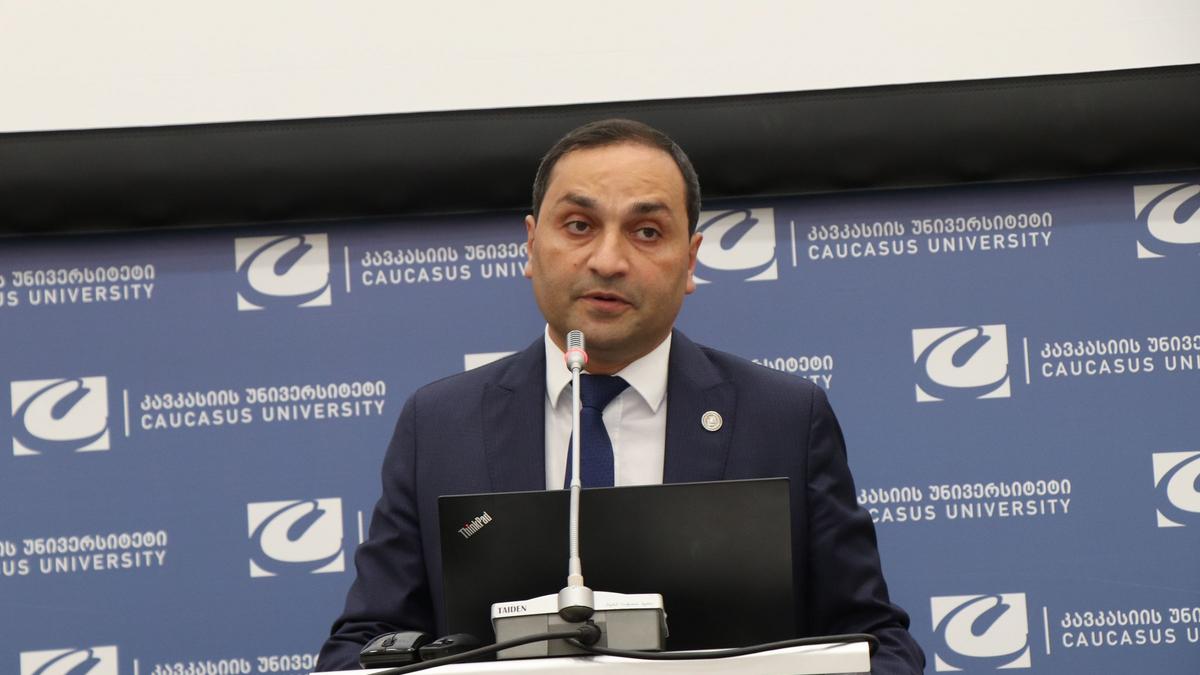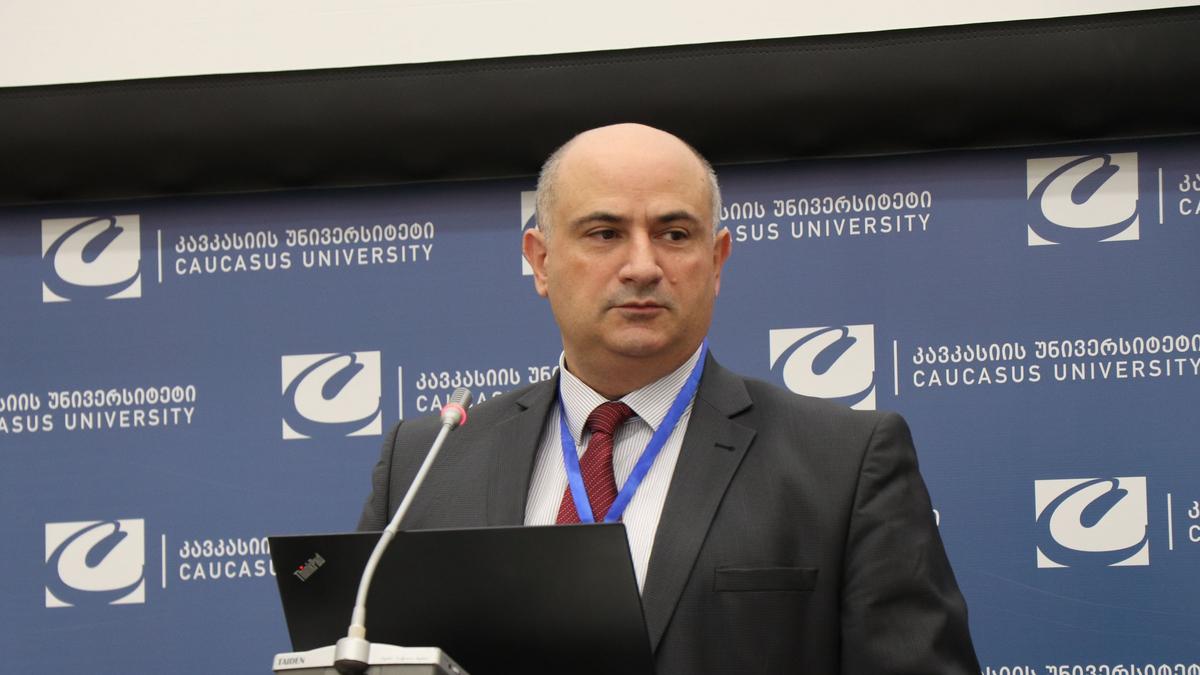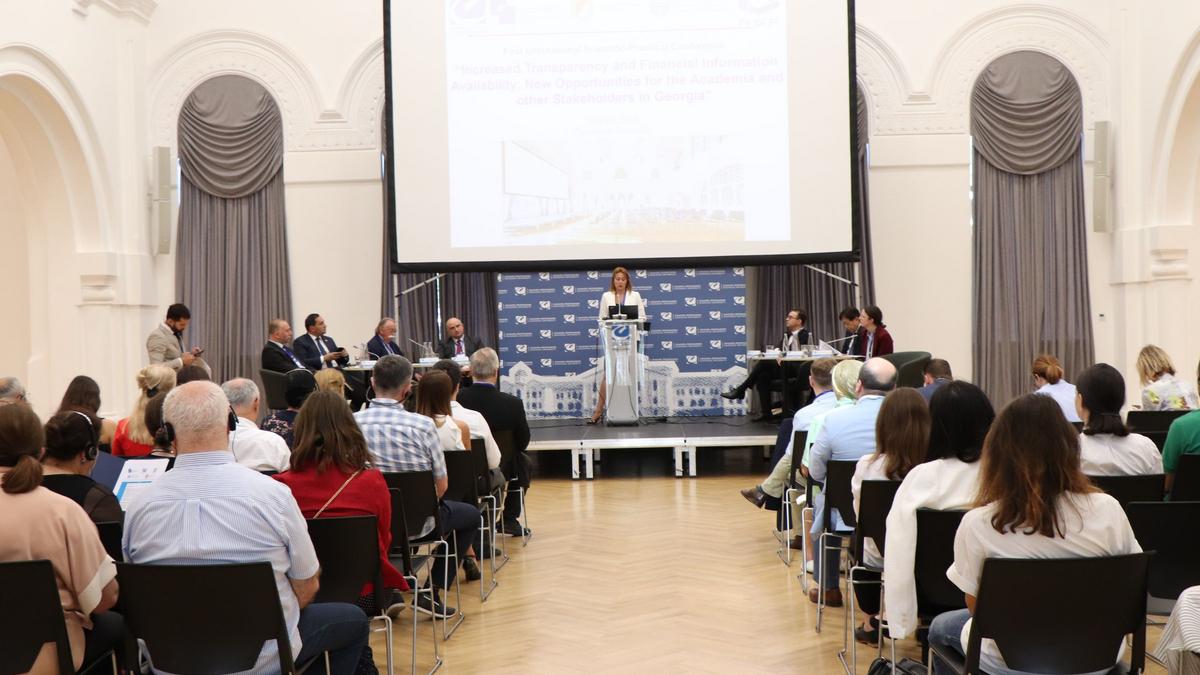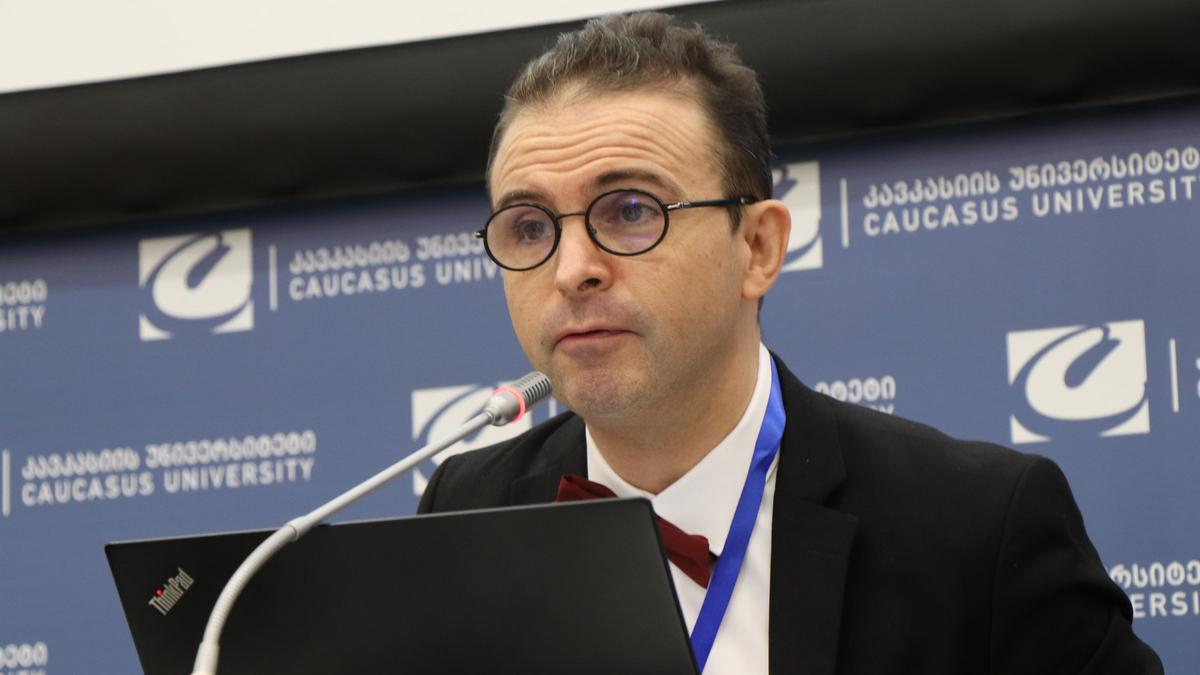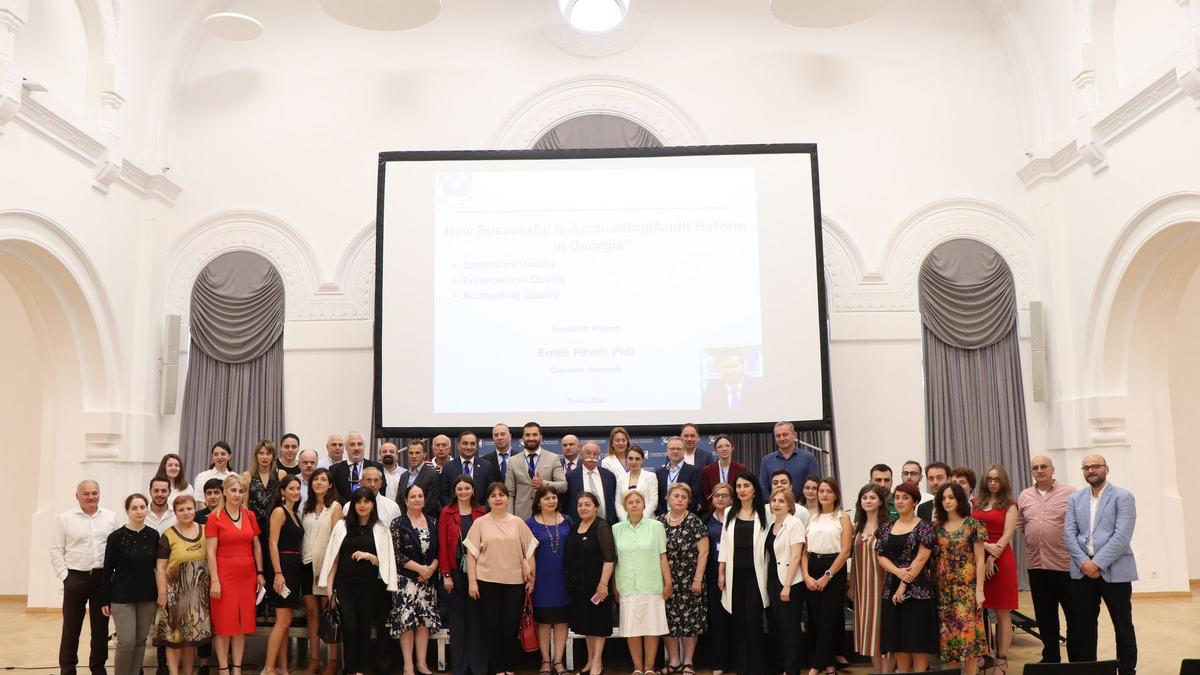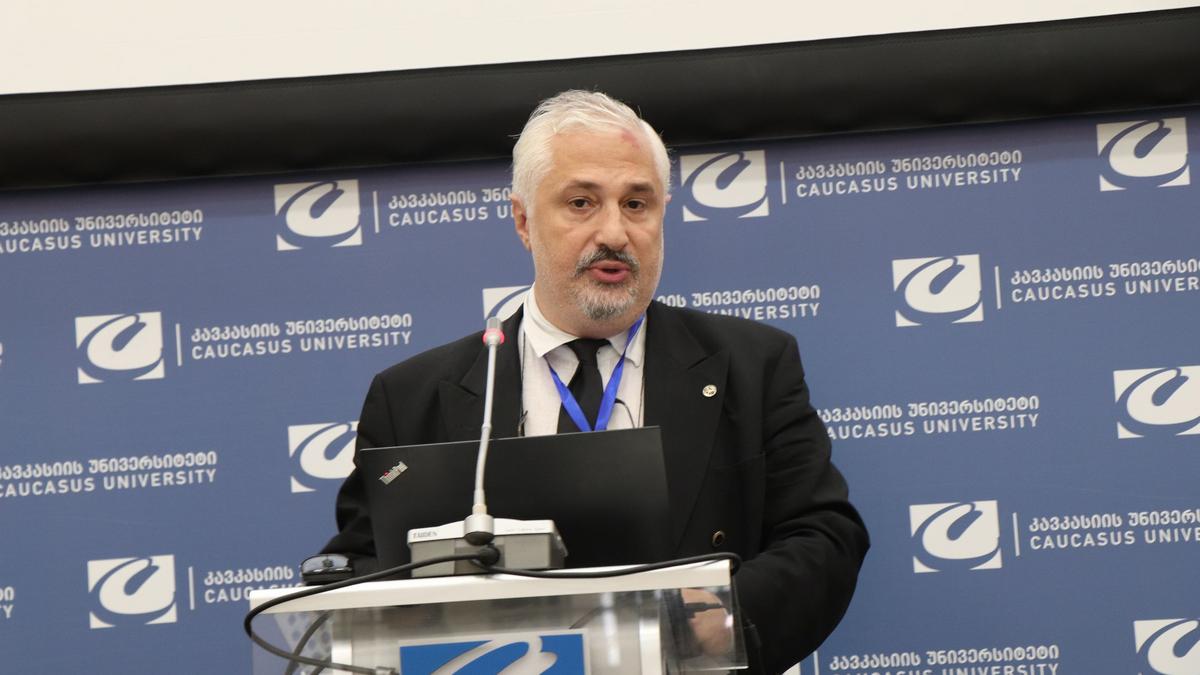Sectors & markets
First International Scientific-Practical Conference
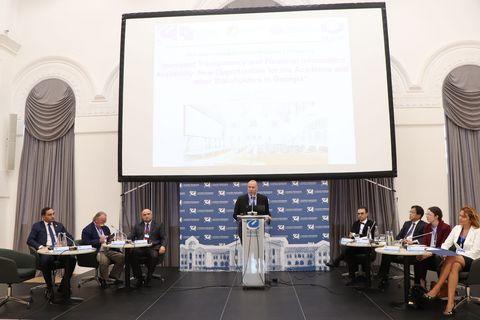
Accounting sector
"Increased Transparency and financial information availability: New opportunities for the Academia and other Stakeholders in Georgia."
25 July 2019
First Erekle Pirveli, accounting professor at the Caucasus University, introduced the conference by remembering that the agreement signed between the European Union and Georgia in 2014 insisted on the need of a new law on accounting. This new law entered into force in 2016 for big companies, and on October 1rst, 84,000 private sector entities - that is to say SMEs - will have to go transparent.
All of the others speaker, especially Mr. Pierre Clouet, Director of the French Institute in Georgia, and Mr. Jacques Potdevin, president of the National Reforms Support Foundation in France, greeted that evolution and both insisted on the importance of transparency that fosters integrity in business, and saw that evolution has a good step for Georgia for the years to come.
The panel then discussed the effect of the implementation of IFRS (International Financial Reporting Standard) in Georgia. They remembered that the country came from a difficult situation after the fall of the USSR, the first accounting law was adopted in 1999, followed by another one in 2012, which received criticisms from international accounting organisations, including the World Bank, for a lack of transparency. The 2016 law has the purpose to correct all these flaws. According to studies, of the 770 big enterprises who published their accounting 92% were conformed to the law, showing strong will from the Georgian private sector to apply the law.
The next step is for Small and Medium Enterprises to comply with IFRS standard, for 1 October 2019, in that purpose the SARAS (Service for Accounting, Reporting and Auditing Supervision) represented by Mr. Yuri Dolidze, said that they provide information, translations in Georgian and trainings. Right now, 500 accountants have been trained to the new regulation for SMEs.
The panel praised the effects of the law on large companies, as it gives by its transparency a higher access to finance, therefore easing the investors' life by giving to them a more complete and financial information. Also, it was revealed that there are 100 000 accountants, 257 auditing firms and 456 registered auditors in Georgia. Nonetheless, they remembered the fact that the law has to be applied and enforced to be effective.
In the afternoon the participants of the second panel were asked about their expectations of the increased transparency in Georgia.
The participants underlined that the entrepreneurs have to understand that it is in their interest, as transparency gives trust to every actors on the market, and trust is vital for a good functioning economy. More than trust, it allows comparability for investors among the enterprises in the market. Comparability is an attractive factor for investors as it facilitates their decision making, by giving them the possibility to compare.
They also addressed the issue of enforcement, which is a vital, because transparency without enforcement doesn't procure the beneficial effects expected by the law.
The day ended with several presentations of scientific papers.
The first paper by Natia Kalatozishvili tries to evaluate the Impact of Audit and Accounting Reform. She asked to a representative panel of accountant questions about the reform. She presented the results of 2 surveys. Only 42% of the accountants have an excellent or a good understanding of the reform, and 58% believe the reform will have a positive impact on the Georgian private sector. Also 57% think that companies are ready or somewhat ready, 27 % report that Georgian companies are not ready and 16% can't assess readiness.
Moreover, according to a SARAS survey, 85% of accountants share the goals and objectives of the Reform.
Perceptions about the reform goals stay positive whereas there is a below average understanding of the reform. It can be concluded, that accountants are not comfortable to give radical answers and they might be reporting what they "should" in opposition to what they "believe". As it comes from the State, it can be perceived as a punishing tool, but as it is also part of the harmonisation process with the EU, so they tend to avoid any critics connected to it. Also, one of the findings is that the reform application can become a financial burden for smaller private companies, with expenses to comply with high quality accounting information, such as calling an accountant.
The second one was about the readiness of Georgian SMEs' accountants in meeting the on-going changes of financial regulation by Polina Bendeliani.
First, she remembered the SMEs’ role in the economy of Georgia, as they contribute to up to 60% of total employment, furthermore they are the flexible and easy adapting engine to meet challenges. Then, she talked about the survey conducted in the paper, which shows that about half of entities are not fully ready to meet on-going reporting deadline, because Georgian entities focused only on Tax Reporting. A majority of the owners of small business do not completely realise or appreciate the significance of formal financial statements. Also, they don't show a burning ambition to go global and attract international investors. Finally, she stressed that the information should be taken into account by the State, who should raise the awareness.
